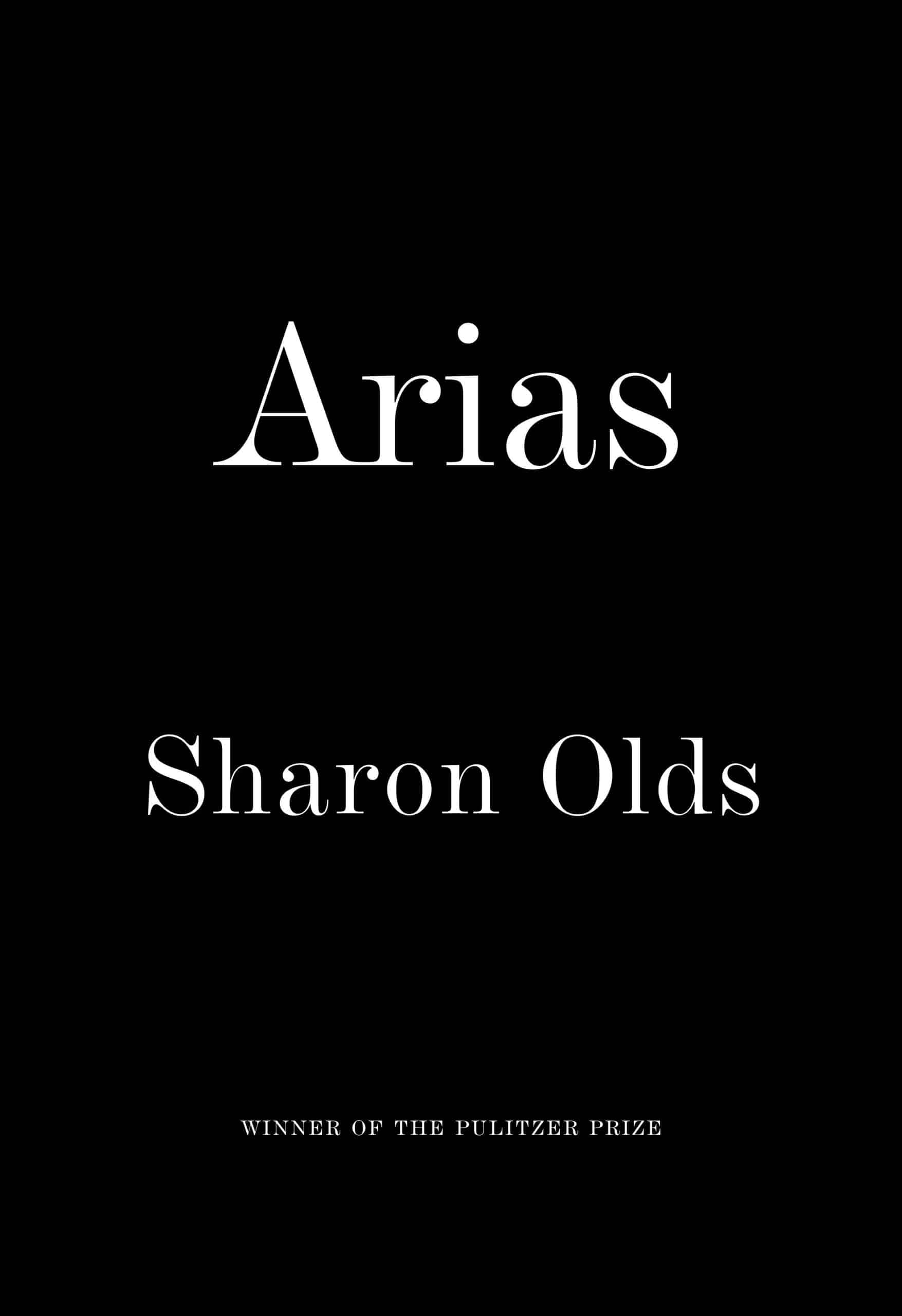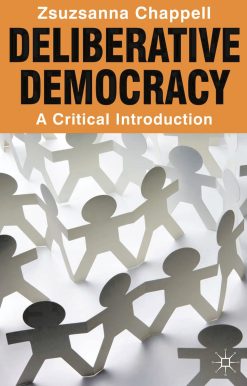Description
Following her recent Odes, the Pulitzer Prize-winning poet gives us radical new poems of intimate life and political conscience, of race and class and a mother’s violence.The atom bomb, Breaking Bad, Rasputin, the cervix, her mother’s return from the dead: the peerless Sharon Olds once again takes up subject matter that is both difficult and ordinary, elusive and everywhere. Each aria is shaped by its unique harmonics and moral logic, as Olds stands center stage to sing of sexual pleasure and chance wisdom, and faces the tragic life of our nation and our planet. “I cannot say I did not ask / to be born,” begins one aria, which considers how, with what actions, with what thirst, we each ask for a turn, and receive our portion on earth. Olds delivers these pieces with all the passion, anguish, and solo force that make a great performance, in the process enlarging the soul of her reader.
Additional information
| Weight | 0.323475 kg |
|---|---|
| Dimensions | 1.651 × 15.494 × 23.1902 cm |
| Author(s) | |
| Format Old` | |
| Language | |
| Pages | 208 |
| Publisher | |
| Year Published | 2019-10-15 |
| Imprint | |
| Publication City/Country | USA |
| ISBN 10 | 1524711608 |
| About The Author | SHARON OLDS was born in San Francisco and educated at Stanford University and Columbia University. The winner of both the Pulitzer Prize and England's T. S. Eliot Prize for her 2012 collection, Stag's Leap, she is the author of eleven previous books of poetry and the winner of many other awards and honors, including the inaugural San Francisco Poetry Center Award for her first book, Satan Says (1980), and the National Book Critics Circle Award for her second, The Dead and the Living, which was also the Lamont Poetry Selection for 1983. The Father was short-listed for the T. S. Eliot Prize, and The Unswept Room was a finalist for the National Book Award and the National Book Critics Circle Award. Olds teaches in the Graduate Creative Writing Program at New York University and helped to found the NYU outreach programs, among them the writing workshop for residents of Goldwater Hospital on Roosevelt Island and for the veterans of the Iraq and Afghanistan wars. She lives in New York City. |
| Excerpt From Book | Meeting a StrangerFor YouIn the morning, when I’m pouring the hot milkinto the coffee, I put the side of myface near the convex pitcher, to watchthe last, round drop from the spout—and it feels like being cheek to cheekwith a baby. Sometimes the orb pops back up,a ball of cream balanced on a whale’swatery exhale. Then I gather the tools of my craft, the cherry sounding-board tray for my lap, like the writing-arm of a desk, the phone, the bird book for looking upthe purple martin. I repeat them as I seek them,so as not to forget: tray, cell phone,purple martin; tray, phone,martin, Trayvon Martin, song wasinvented for you, all art was madefor you, painting, writing, was yours,our youngest, our most precious, to remind usto shield you—all was yours, all that isleft on earth, with your body, was for you.Looking South at Lower Manhattan, Where the Towers Had BeenIf we see harm approaching someone—if you see me starting to talk aboutsomething I know nothing about,like the death of someone who’s a stranger to me,step between me and language. This morning,I am seeing it more clearly, that songcan be harmful, in its ignorancewhich does not know itself as ignorance.I have crossed the line, as the line was crossedwith me. I need to apologizeto the letters of the alphabet,to the elements of the periodictable, to O, and C, and H,oxygen, carbon, hydrogen,which make up most of a human body—body which breaks down, in fire,to the elements it was composed of, and all that isleft is ashes, sacred ashesof strangers, carbon and nitrogen,and the rest departs as carbon dioxide and isbreathed in, by those nearby,the living who knew us and the living who did notknow us. I apologizeto nitrogen, to calcium with thepretty box-shape of its crystal structure,I apologize to phosphorus,and potassium, that raw bright metalwe contain, and to sodium and sulfur, and tothe trace amounts which are in us somewhere like thestars in the night—copper, zinc,cobalt, iron, arsenic, lead,I am singing, I am singing against myself, as ifrushing toward someone my song might be approaching,to shield them from it.Meeting a StrangerWhen I meet you, it’s not just the two of us meeting.Your mother is there, and your father is there,and my mother and father. And our people—back from ourfolks, back—are there, and what theymight have had to do with each other;if one of yours, and one of minehad met, what might have happened is therein the room with us. They are shadowy,compared to us, they are quivers of reflectedlight on a wall. And if I werea German, and you a Jew, or I aJew and you a Palestinian,or, as this morning, when you are an AfricanAmerican woman, and I am a WASP,one of your family might have been takenfrom their home, and brought through murder to murderby one of my family. It is there in the airwith us. And if you’re a woman in the citywhere you live, and I am staying atthe hotel where you work, and if you have brought memy breakfast on a tray—though you and I have notmet, before, we are breathing inour lineages, together. And whetherthere is guilt in the room, or not, or blame,there is the history of human evil,and the shame, in me, that someone I could berelated to, could have committed,against someone you are related to, somehorror. And in the room, there isa question, alive—would I have risked harmto try to protect you, as I hope I would risk itfor a cousin, a niece, or would I have stoodaside, in the ordinary cowardice and self-interest of my flesh now sharing your breath,your flesh my breath.No MakeupMaybe one reason I do not wear makeup is to scare people.If they’re close enough, they can see something is different with me,something unnerving, as if I have no features,I am embryonic, pre-eyebrows, pre-eyelids, pre-mouth,I am like a water bear talking to them,or an amniotic traveler,a vitreous floater on their own eyeball,human ectoplasm risen on its hind legs to discourse with them.And such a white white girl, such a sickly toadstool,so pale, a visage of fog, a phiz ofmist above a graveyard, no magenta roses,no floral tribute, no goddess, no grown-upwoman, no acknowledgmentof the drama of secondary sexual characteristics, just thegray matter of spirit talking,the thin features of a gray girl in a gray graveyard—granite, ash, chalk, dust.I tried the paint, but I could feel it on my skin, I couldhardly move, under the mask of mydesire to be seen as attractive in the femaleway of 1957,and I could not speak. And when the makeup came off I feltactual as a small mammal in the woodswith a speaking countenance—or a basicprimate, having all the expressionswhich evolved in us, to communicate.If my teenage acne had left scars,if my skin were rough, instead of soft,I probably couldn’t afford to hate makeup,or to fear so much the beauty salon or thevery idea of beautyship.And my mother was beautiful—did I say this?In my small eyes, and my smooth withered skin,you can see my heart, you can read my naked lips.A Pair of Sonnets Against the Corporal Chastisement of ChildrenBlows That Fall on a ChildBlows don’t fall. Feathers fall,and are dropped from towers. Leaves fall.Dictionaries fall from towers—the speed of their fall accelerates,and the rate of the accelerationaccelerates. What falls is somethinglet go of, something gravityis hauling to it, to tiramisu it—dessert that says pull me to you. The liverand lights of the body that the blow strikes are notmagnets, the blow is neither drawnto its objects nor floated down from its source—a blow is driven, by an engine, it isthe expression of a heart.The Progeny of PunishmentThey inherit the earth. They crawl on it,they pull themselves up, they walk, they look up,they do not know which visage they will seeabove them—the crescent, or the waxing gibbous,seas and craters of the eyes nose mouth.Sometimes the cycle has a pattern, sometimesthe new is followed in an instant by the full,as if a face turned suddenly toward you,and in its holes and shadows you could readthe next hour of your life. With the impact of agiant bolide, the moon was born,struck right off the earth. The childrenborn as the corporeal subjects of their makersare our species’ living daylights, being beaten out.(b. 1972, d. 1979)1.Poem to Etan PatzThen the butter we put on our white bread was colored with butter yellow, a cancerous dye, and all the fourth graders were taken by streetcar to the Dunky Company to see milk processed. . . . Before we were herded back to the streetcar line, we were each given a half pint of milk in tiny milk bottles with straws to suck it up. In this way we gradually learned about our country.—Ruth Stone, “American Milk”This morning, on the front page, in a headline,the A and the Z of your name. I was walking up thesidewalk my son had walked up, that morning,to the bus to school. I beg your forgivenessfor speaking to you now whom I had not known—only my son, your age then, known.And this morning there is an arrest, a confession,now we have some words of a story,lured, promise, bag, out in theopen with trash. He says you werea block away from your building—not you,but what you had been ravaged from.But how could he have seen you, and wantedto stop you, to tear you out of the world.33 years ago—along life set next to yours.Your mother, your father—forgive me, I do notknow them—may have walked past your foldedform. Young darling, nothing in your naturehad anything to do with anything you sawthat day, or learned. But who could want that,for a baby to have to know, with his life, who weare at our worst, with his last eyes—your smile printed, then, on everycarton of what makes the bones long,every child at breakfast gazinginto the red mirror. In this waywe gradually learn about our country.2.Poem Which Talks Back to MeThe parents whose boy went off to schoolthat morning—the police may have found someonewho saw their son, alive, afterthey saw him for the last time. Step away!Someone who saw that elfin facechange, at the word “soda.” Step back!And change again, and change. And downthe basement steps, down into the earth,the stairs down into the underworld.Don’t go there. Close your eyes. Someonemay know the unbearable—someonein custody. O, “custody.”A wall of dirt, a wall of stone,a bare bulb, like the uterus upsidedown. No Kaddish, no washing of the dead,no linen shroud, no companythrough the long night.Whatever honor can be kept for him—his pure and whole honor is keptby his parents, for the rest of the hardlabor of their lives. All this time,they could not die, so they’d be here, in casehe came back. Unspeakable. And now,the one taken in for questioning cries out,“I don’t know why, I don’t know why.”He will not tell. He is holding that hourto himself. Did he hold that child in his hands. Andvanish him, the spirit mattered away.And the dear matter—don’t. The truck,the landfill, or the barge, the burialat sea—the dispersal, the containment withinthe bounds of the oceans, crested on top andcragged at the floor where the mantle of the planet poursup, molten, through fissures—containedin the air bound by the atmosphere, theclouds of mourning pressing againstthe inner surface of the casing. Shutyour mouth. Put down your pen. Dropyour weapon! Stop! In the name of the lawand the prophets. At his birth, the history of the earth began.Birds in AlcovesMore and more, along the shoreof the Northeast Corridor,where the trains run along the edge of the land,birds are standing in alcoves like telephone boothsas the humans go by—doorless ceilingless closets in walls of reedwhose floors are the banks, awash in water,of inlets and bays.Large wading birds step back into green recesses,and stand very still,sometimes more than one in the narrow space,sometimes a blue heron and a great egret facing each otherbeak to beak. Some birds do not stand,but grip a branch with their feet to stay upright.Some birds hop, bouncing alonglike little pocketless kangaroos,and a crow walks along with coins singing in her trousers.But many birdsfreeze when they see us,like a horror movie—a scene in a housewhere a killer has a special room.Herons, egrets, ibises, bitterns,storks, cranes, coots, railsfall silent, struck motionless at our advent.Some sidestep, for safekeeping, into extinction.8 MoonsAn atom bomb—does it reduce everythingto atoms—to a mist the size of the moon?And the hydrogen bomb—is there water in it?When you drop it, does the mushroom above itlook like a splash, as if you’d droppedthe moon onto the ocean? If you droppedthe moon onto the Pacific, would itsdiameter fit? Eight moonsdropped onto the Pacific would fit on it. We can’t imagine the length of timeit took to make the universe.And the death of the earth—for most of us,unimaginable, and thereforeinevitable. As if each parent,at the same moment, will see our offspringatomized, our species’ cloudslifting off the globe, the huge, childless atom.My Father’s WhitenessIt takes me a lifetime to see my fatheras a white man—to see his whiteness(named by white men after gleaming and brightness).I saw the muck sweat of his pallor, he’d befaceup on the couch like a mushroom in a mushroom-forcer,and I didn’t even wonder what it would feel likefor a person to be proud of their father.I knew that at the interfraternity council he’d been the handsome, wisecracking one, thepresident, proud he could not read,he could always get someone to do that for him—he liked to say the two people allowedto graduate from his college without knowing how toread or write were him and Herbert Hoover.Nor did any frat house therehouse a brother.Nor did I see my father—that in order to passout every night on the couch, snoreand snort and gargle-sing from his chintzsty, he had to overcomeevery privilege known to a mantall, dark, handsome, white,straight, middle class. He had to put hisevery advantage down on the street and driveover it with that thump a tireand a body make. O say can you see him as Isee him now, as if he had no oneto answer to, he so preparedto devour and excrete the hopes he’d been handedon a platter, the spoon in his mouth, he could eatwhat he had not earned, he could do it in his sleep.State EvidenceWhen the men in maximum securitywere saying what they’d done, I thought of him,the one who had not had a nameuntil they found our seventh-grade classmate’sbody half buried near his brother’s cabinin the hills, fifty years ago, and for amoment I thought that he had cheated, by payingup front, not doing his time—the fortythousand volts had sprung him from his twenty-fourhours a day, his four hundred thirty-eightthousand hours. I do not knowhow much it cost the state to fry him,to light up a man like a city, a species, but itprobably wasn’t as much as threehots for fifty years, so his murder may havesaved us a lot, and it saved him a hell of alot of time. But his execution—wasn’t it state evidence that it’sO.K. to kill someone? What did shehave to protect herself with, against suchevidence? One pinkplastic barrette—hold the lamb,or rabbit, in your fist, and sinkits shank in his throat. |
Only logged in customers who have purchased this product may leave a review.






Reviews
There are no reviews yet.